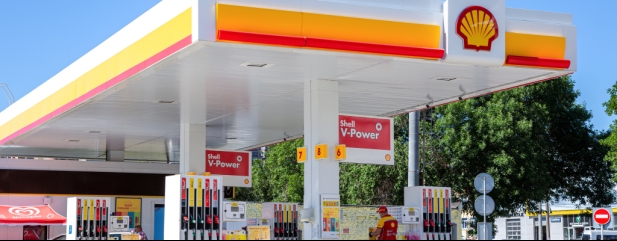Archived article
Please note that tax, investment, pension and ISA rules can change and the information and any views contained in this article may now be inaccurate.
Buy shares in Shell: it has a big plan to catch up with US rivals

Energy giant Shell (SHEL) is on a mission to play catch-up with its higher-valued US peers and investors should hop on for the ride.
New chief executive Wael Sawan pledged laser-like focus on cash and returns at an investor day on 14 June and if he can deliver on his promises, shareholders stand to see a real benefit in the next two or three years. Sawan is adopting a more pragmatic approach to the company’s transition away from fossil fuels. He has abandoned plans to cut oil output by 1% to 2% a year out to 2030.
Sawan is adopting a more pragmatic approach to the company’s transition away from fossil fuels. He has abandoned plans to cut oil output by 1% to 2% a year out to 2030.
Based on consensus forecasts for 2024 Shell trades on a price to earnings ratio of 6.8 and offers a dividend yield in the region of 5%. By comparison, its US counterpart ExxonMobil (XOM:NYSE),
which has not made the same commitments to shifting out of hydrocarbons, is on a PE of 11.4 and yields 3.7%.
Shell is scaling back its capital expenditure, cutting its budget for 2024 and 2025 to between $22 billion to $25 billion from a previous range of $23 billion to $27 billion, and is aiming to reduce its operating costs by $2 billion to $3 billion per year by 2025.
The emphasis placed on returns means it will move away from more speculative investments in clean technologies like hydrogen and carbon capture.
All these initiatives should help underpin a 10% increase a year in underlying free cash flow per share. Investment bank Berenberg estimates Shell could generate a free cash flow yield of 12.5% at a conservative oil price of around $65 per barrel – most of which can be returned to shareholders through dividends and share buybacks.
What provides some confidence in these targets is that Shell is not in a bad shape. It has a strong balance sheet with net debt having nearly halved since the end of 2019 to its lowest level in more than a decade. It also has a leading global LNG (liquefied natural gas) business which could have a crucial role to play as the world seeks to gradually move to less polluting fuels.
Shell faces both structural and cyclical risks. Energy prices are likely to remain volatile and a global recession could hit demand. This is mitigated somewhat by geopolitical tensions which are constraining supply as well as Saudi Arabia’s recent efforts to prop up prices.
The other risk is that by seemingly backsliding on its commitment to the energy transition Shell faces an increase in political and regulatory pressure. Investors may have their own ethical concerns about this too.
Important information:
These articles are provided by Shares magazine which is published by AJ Bell Media, a part of AJ Bell. Shares is not written by AJ Bell.
Shares is provided for your general information and use and is not a personal recommendation to invest. It is not intended to be relied upon by you in making or not making any investment decisions. The investments referred to in these articles will not be suitable for all investors. If in doubt please seek appropriate independent financial advice.
Investors acting on the information in these articles do so at their own risk and AJ Bell Media and its staff do not accept liability for losses suffered by investors as a result of their investment decisions.
Issue contents
Feature
Great Ideas
Investment Trusts
News
- Why the market was spooked by the Bank of England’s super-sized rate hike
- CAB Payments IPO could be the trigger to revive UK stock market flotations
- Drug companies under the spotlight after breakthrough with new weight-loss treatment
- Fidelity China Special Situations shares hit after China reopening stutters
- The UK stock market is starting to look increasingly lopsided
- Carnival shares have soared this year but it’s become a rockier ride
 magazine
magazine








